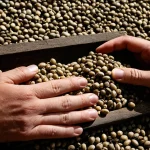Unique and Unexpected Traditions Across the UK
The UK cultural traditions boast a remarkable variety of surprising UK customs that often astonish visitors. From quirky village events to centuries-old celebrations, many British traditions remain lesser-known yet vividly distinct. For example, in parts of England, the ancient practice of well dressing involves decorating wells with intricate floral designs, a custom rooted in gratitude for clean water. This unusual British tradition highlights both local creativity and deep respect for natural resources.
Across the UK, such unusual British traditions reveal important cultural values, often blending pagan rituals with community celebration. In Wales, residents partake in quirky ceremonies like Mari Lwyd, where a horse’s skull is paraded for good fortune, a practice both eerie and captivating. These customs contrast sharply with modern perceptions of the UK as primarily urban and conventional, reminding us of the country’s rich tapestry of heritage.
Also read : What are the UK’s initiatives for cultural heritage preservation?
Recognising these unique regional customs invites a greater appreciation of the UK’s diverse cultural landscape. Embracing the surprising UK customs bridges the gap between contemporary life and historical roots, encouraging engagement with traditions that continue to charm and bewilder alike.
Historical Origins of Distinctive British Customs
The history of UK traditions reveals how many unusual British customs grew from centuries-old events and local beliefs. For example, the practice of well dressing originated in medieval times as a display of gratitude for clean water during droughts or plagues. This reflects how environmental challenges shaped early UK cultural traditions, blending survival with celebration.
Also read : How Will Recent Political Changes Impact Everyday Life in the UK?
Ancient rituals and folklore deeply influence the origins of British customs. Morris dancing, a lively folk dance with roots tracing back to the 15th century, combines music, movement, and symbolic costumes reflecting agricultural cycles and community bonding. Similarly, the intriguing tradition of cheese rolling in Gloucestershire, where participants chase a wheel of cheese down a steep hill, has unclear early origins but is believed to be linked to seasonal festivals praising fertility and abundance.
These traditions exemplify the strong cultural heritage UK communities maintain. They also highlight the surprising persistence of practices born from historical circumstances that may seem strange today but carry deep meaning. Understanding the history of UK traditions offers insight into how local stories, environmental needs, and communal values formed the basis for many celebrated, yet unusual British traditions still enjoyed across the country.
Regional Traditions That Defy Expectations
Across the UK, regional UK traditions showcase extraordinary diversity that often defies stereotypes about British life. Scotland’s Up Helly Aa is a fiery Viking-themed festival featuring torchlit processions and ceremonial ship burnings. This spectacular event highlights northern Scottish heritage, blending historical reenactment with community celebration. In Wales, local British customs such as Mari Lwyd involve parading a horse’s skull in a ritual that mixes humor and ancient folklore, demonstrating how Welsh traditions embrace both mystery and merriment.
Northern Ireland surprises with its surprising English, Scottish, Welsh, Northern Irish traditions too. The Burryman procession in South Queensferry, where a man is covered in burrs and paraded through town, reflects deep-rooted local beliefs in warding off evil spirits. This tradition underscores how communities actively preserve unique customs, linking past to present.
These customs exemplify the vital role of community in maintaining and celebrating local heritage. Despite modern pressures, these distinctive regional UK traditions are living practices, offering enchanting insights into the country’s multifaceted cultural tapestry. Their persistence challenges notions of uniform British culture, revealing instead a vibrant mosaic of peculiar yet meaningful celebrations specific to different parts of the UK.
Modern Interpretations and Continuations
UK traditions are not static; evolving UK traditions show how ancient customs adapt to contemporary life while preserving their core spirit. For instance, many contemporary British customs now incorporate modern themes or alternative settings to engage younger generations without losing authenticity. Events like well dressing, originally a solemn thanks for water, often blend artistry and tourism appeal, ensuring relevance today.
Public interest and media coverage play a pivotal role in how tradition adaptation UK unfolds. Quirky festivals with centuries-old roots now feature lively promotions and social media presence, amplifying their reach beyond local communities. This transformation helps sustain participation and invites newcomers, effectively blending history with modern entertainment.
Such adaptations highlight tradition’s flexibility. Whether through updated costumes, inclusive activities, or eco-conscious practices, evolving UK traditions maintain vitality by reflecting current values. This careful balance encourages community pride and cultural continuity, demonstrating how contemporary British customs thrive amid societal changes while reinforcing shared heritage.
Anecdotes and Personal Experiences from Across the UK
Personal stories from those engaged in UK cultural traditions reveal deep emotional connections to surprising UK customs. Many locals describe feeling a profound sense of belonging when participating in unusual British traditions, such as the exhilarating chaos of cheese rolling or the eerie fun of Mari Lwyd. These firsthand accounts highlight how traditions are living experiences, not just historical relics.
Visitors often share their astonishment at witnessing events like the Up Helly Aa torchlit procession, appreciating how communal spirit transcends unfamiliarity. Such cultural experiences UK emphasize the welcoming nature of these customs, inviting participation even from outsiders. One participant recalled the physical challenge and camaraderie envolved in the Burryman procession, stressing how these rituals build strong community bonds.
These personal anecdotes enrich understanding by illustrating why traditions endure: they foster identity and continuity. The passion locals express for their customs confirms that first-hand accounts British customs are invaluable for grasping tradition’s impact beyond mere observation. Whether as participant or spectator, people consistently report that experiencing these traditions creates lasting memories and a unique window into the heart of British culture.


